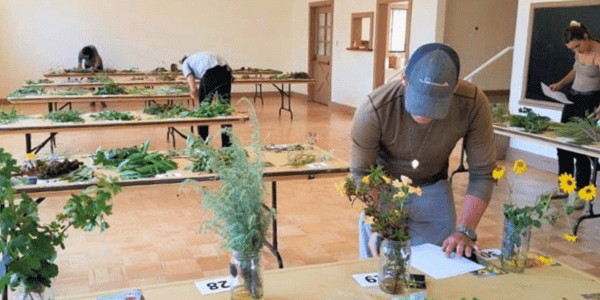
California Botanist Certification Exam
August 9, 2024 @ 8:00 am - 5:00 pm

Botanist Certification helps ensure that the most qualified people conduct California’s environmental reviews and that our decision-makers have the information they need to make sound land-use decisions. Please note, the order of the exams may change as the need arises, so come prepared to take the exams without needing to review on the day of the exams.
Target Audience: Professional field and consulting botanists, and those studying and/or working to become professional botanists.
The Associate Field Botanist has a basic knowledge of the California flora and the ability to use dichotomous identification keys to determine a plant’s identity. The Associate Field Botanist also has a basic understanding of botanical terminology and field survey methods. They can be considered an apprentice to become a Certified Field Botanist. An Associate Field Botanist certification is awarded to those who have received a score between 60% and 74% on each exam.
The Certified Field Botanist is competent in identifying native and naturalized plants found in California, and is able to use appropriate field survey methods and protocols that satisfy documentation and assessment requirements. They can identify the dominant and characteristic plants that compose the California flora and know how to identify those native and naturalized species that they may not be able to identify on sight. They have a good grasp of botanical terminology and know how to conduct field surveys and map plant occurrences and populations that are necessary for laboratory analyses and/or impact assessments. They can also monitor plant populations during and after construction, and perform monitoring of mitigation implementation (during and afterwards). The Certified Field Botanist knows how to characterize the botanical resources of a site and record their findings.
The Certified Consulting Botanist has satisfied all requirements of a Field Botanist, as well as demonstrated competence in document preparation, such as: describing baseline conditions of a study/project area, critically analyzing project-related impacts to botanical resources, developing feasible mitigation measures to avoid or compensate for identified impacts, and demonstrating a clear understanding of environmental laws and regulations pertaining to plants. They know how to research environmental policies and regulations that apply to a variety of projects and how to document the existing conditions of a project site or study area. The Certified Consulting Botanist knows how to assess project-related impacts to the botanical resources of the site and whether those impacts are considered significant pursuant to environmental regulations, whether they be federal, state, or local. They also can develop feasible mitigation measures to reduce any significant impacts to less-than-significant levels, and are adept at assisting clients through the environmental permitting process, at least as far as the botanical resources are concerned.
Learn how to prepare for the exam here with our study guide and plant list.

